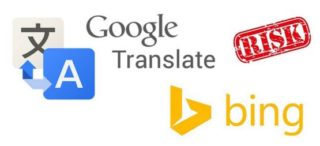Which online language translator does the best job? A page of text in an unidentifiable language presents few problems for the modern web junkie with a dismal E in GCSE French.
A couple of clicks, and that page can easily be rendered in their mother tongue – provided said tongue isn’t the obscure Aboriginal dialect of Enindhilyagwa. Yahoo’s Babelfish, Microsoft’s Bing Translator and Google Language Tools vie for supremacy within the sphere, battling to stop a simply-expressed idea such as “please take your hands off my wife” from losing important nuances and becoming “I offer you the hand of my wife.”
Recent advances in machine translation have been incredible. The methods used by the big three services to interpret language rely on a colossal store of translated text (Google, for example, has built its stash from UN documents in Arabic, Chinese, English, French, Russian and Spanish) and as computers become faster, cheaper and more capacious, translations improve.
Despite this, they’re still only tools designed to communicate the gist of something; you’d have unsatisfactory results if you used one to tie up a business deal, and disastrous results if you fed seductive language into it and used the resulting text on an internet dating website. But you still see a certain amount of misplaced trust in these services. You see journalists using them to cut corners rather than call someone who actually speaks the language in question.
Language Translations offers translation services by professional linguists who know there is more to a professional translation services than just mere words. Today Translations offers translation services through a global team of 2,600 linguists, that handle an over two million-plus words translation per month.

